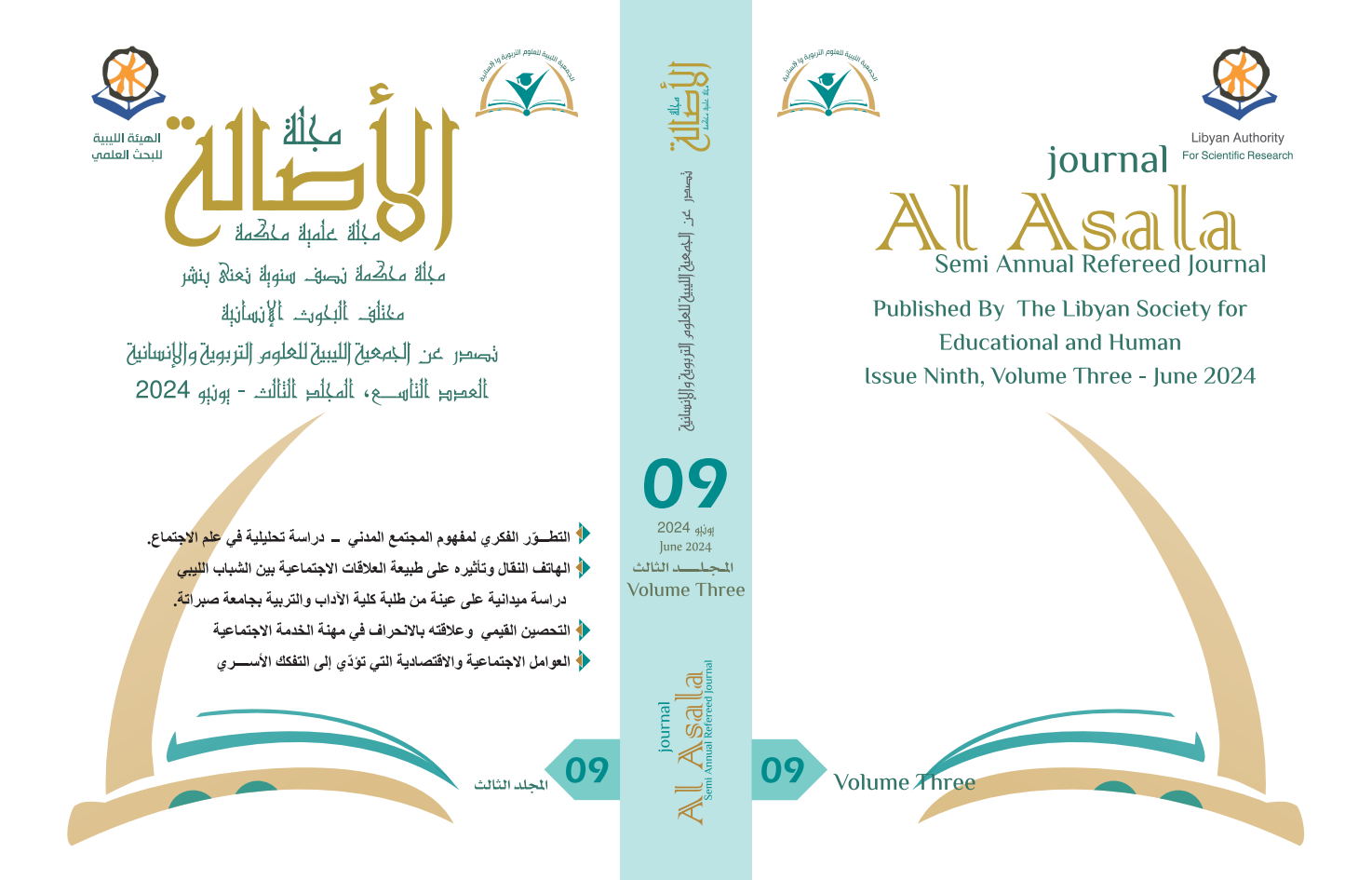الحالة الاقتصادية للأسرة ومدي تأثرها بالسياسات الاقتصادية التي يتبناها المجتمع الليبي "دراسة سوسيولوجية"
Main Article Content
Abstract
The political transformations that Libyan society has undergone have had an impact on all social fields and groups, especially the Libyan family. The family has been affected during the period of political transformations by many economic problems, including a significant rise in the prices of basic commodities needed by the citizen, where the gap between income and prices diverged, which is a threat to the living conditions of the family, and the research problem can be identified through the following question What factors affect the historical development of the phenomenon of consumption in Libya? Is there a specific pattern of consumption in Libyan society? The research aims to identify the economic situation of the family and the extent of its impact on the economic policies adopted by the Libyan society. The research used the analytical classroom approach to describe the phenomenon and determine its dimensions, as well as the historical approach was used when tracking the development of the phenomenon of consumption pattern in Libyan society. The most important results of the research are that following liberal policies did not lead to development, as they did not solve economic and social problems. The success of the development process requires wise interventionist policies, and here the role of the state in achieving development in the broad sense emerges. The goal of these programmes and policies, namely to mitigate the negative social effects of economic reform, is far beyond their means. Mitigation is not directly related to the goal of addressing poverty and correcting the distribution of income and wealth, but is limited to some of its symptoms. There is a lack of quality of projects, as most of them came at the request of government agencies, and were characterized by a degree of similarity, which raises questions about the extent to which they meet the needs of the affected groups.

